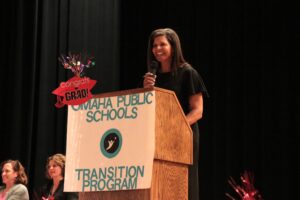Public school undermining children’s education, future, Oklahoma parents allege
Numerous Oklahoma parents claim their special-needs students are being segregated and denied rigorous academic instruction, and are having their futures undermined by the public school…

Numerous Oklahoma parents claim their special-needs students are being segregated and denied rigorous academic instruction, and are having their futures undermined by the public school system.
Nine families of Bixby Public Schools (BPS) have filed a complaint with the state education department, saying the school system is failing their students, reports Ray Carter, director of the Center for Independent Journalism at the Oklahoma Council Of Public Affairs.
“You shouldn’t have to sell your house and move to a different school district just for your kids to get their rights that they deserve, to find a school that’s following the laws,” said Lauree Lee, whose daughter has Down syndrome.
Special-needs students in Bixby are allegedly being forced into exclusively special education classrooms – even though the law says they should be educated along neurotypical peers whenever possible.
“We have always petitioned Bixby meeting after meeting, year after year, to get more time with his friends in the typical classroom. And sadly, the answer has always been no,” said Luke Haley, whose 9-year-old son Layton attends Bixby West Elementary.
“So, for the past four years, 80% of our son’s day has been segregated away from his friends.
“Jesus tells us that when you do for the least of these, you do for me. The kids that we are advocating for are absolutely the least of these, and I’m asking Bixby to see them for the precious souls that they are and lift them up and make them feel like they belong with their peers, because that’s what ultimately this is about.”
‘She’s capable of more’
But the issues don’t stop with classroom arrangements. The parents also claim BPS isn’t giving their students academically rigorous instruction, Carter writes.
“At parent-teacher conferences, I was asking the gen-ed teacher, ‘How is Adeline doing during that time?’ And she goes, ‘Oh, I don’t really teach her. That’s a SPED teacher’s job,’” Kristen Whitmer, the mother of a 7-year-old girl with Down syndrome, recalled.
“So, Adeline was physically present, but the general education teacher did not view it as her responsibility to even try to educate her. And all of us have had similar comments.”
The parents specifically allege BPS is still using the “three-cueing” system of reading instruction – even though the method has been debunked.
The three-cueing approach teaches students to read not by sounding out letters, but with techniques such as using context to guess what the word might be, or looking at just the first letter of the word.
Using modern technology such as MRIs, education researchers eventually found cueing approaches weren’t as effective as phonics – sounding out each letter to form a word. Phonics-based reading instruction was thusly dubbed the “science of reading.”
A BPS spokesperson denied the use of three-cueing, reports Carter, but parents still don’t think their children are learning anything.
“We haven’t really seen much progress, honestly,” said Lee, whose daughter has been a BPS student for three years. “So that was a big red flag.
“We just think she’s capable of more.”
Whitmer argues she had to work hard to convince the district to set any meaningful learning goals for her daughter.
“Last year, second year in kindergarten, she still had this goal of ‘shall identify her letters,’” she recalled. “And I’m like, ‘Guys, you’ve been working on this since she was 3. She knows her letters. She also knows her letter sounds, her blended sounds, her digraphs, and also lots of sight words.’
“The first reading goal that they were willing to do that was a step beyond the letters was ‘Adeline will learn 15 sight words in the next 12 months.’ And I said, ‘That’s not appropriately ambitious.’”
‘Painting our children as monsters’
And if that wasn’t enough, the parents claim BPS started manufacturing behavioral issues to justify segregating special-needs students, according to Carter.
“They would give us these great reviews,” Whitmer said. “‘They’re so sweet.’ ‘They’re doing so well.’ ‘They don’t have behavior issues.’ They would just glow about our kids.”
But when Whitmer and others complained about their child’s education, those reviews changed. “They started painting our children to be a monster,” she said.
Katy Hough, whose son has Down syndrome, refused to believe what the school told her about her child.
“The thing that got me was that they were trying to say that his behavior was such that he couldn’t be included,” Hough explained, calling her son “the sweetest little thing. He’s a little bossy sometimes, but he’s so sweet, so kind. And, in general, most kids with Down syndrome are sweet kids.”
BPS Superintendent Rob Miller denies the parents’ allegations, saying school leaders “take every parent’s concerns to heart because inclusion is at the core of our district’s values.”
But the families aren’t just worried about their children being discriminated against at school. They’re worried their futures are at stake too.
“[The school is] putting them on curriculum that’s never going to give them an opportunity to even try to earn a regular diploma when they’re older,” Whitmer lamented.
Likewise, Hough said they want their son to excel but BPS isn’t giving him that opportunity.
“We would like for him to grow up and hopefully have a diploma and then go to one of the 300 college programs that are in the United States for people with intellectual disability to learn how to live independently and have meaningful employment and relationships and get married if he would like to.
“But I feel like the path they have him on – I don’t think that aligns with our goals for him. It’s one of the things that makes us really sad.”
The parents’ claims are being investigated, according to state Superintendent Ryan Walters.



